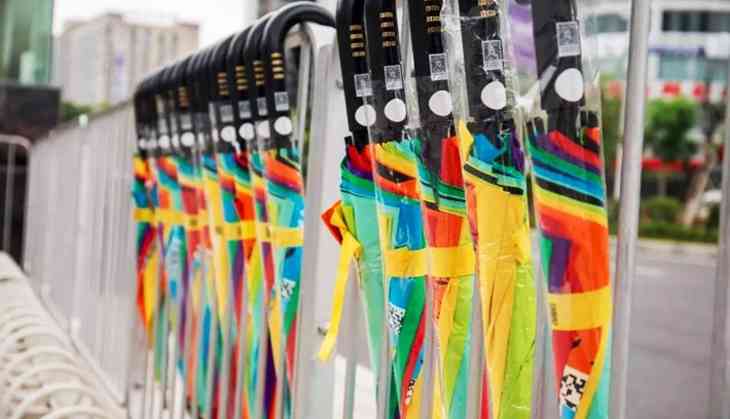How do you manage to lose almost 3,00,000 umbrellas? Ask Chinese startup E Umbrella

It's a no-brainer that everyone in today's day and age wants to get a piece of the sharing economy pie. From renting out spare bedrooms (Airbnb), to sharing space in a taxi (Uber), and delivery of groceries within two hours (Instacart), there is no doubt the sharing economy is here to stay. Not every startup is having a good time though, as China-based E Umbrella just proved.
Gone in a matter of weeks
Even with plenty of rainfall in the region, the Chinese startup is finding life difficult these days. In the first three months of launching, E Umbrella is back to ground zero, albeit after having lost some money along the way. In the 11 Chinese cities that the rental service is available, nearly all 300,000 umbrellas in the company's inventory have reportedly been lost.
E Umbrella, with an investment of 10 million yuan (Rs 9,49,50,000 approximately) at launch in April, charged customers a deposit of 19 yuan (Rs 180 approximately) per umbrella, and an additional half yuan per 30 minutes. "Umbrellas are different from bicycles," E Umbrella founder Zhao Shuping told South China Morning Post. "Bikes can be parked anywhere, but with an umbrella, you need railings or a fence to hang it on."
Umbrella stands came up everywhere from train stations to bus stations, some probably outside in the pouring rain. After paying for an umbrella via the smartphone app, users received a code that would then unlock the umbrella. It seems that the startup wasn't clear on how customers could return the umbrellas once they were done using it, however.
Shuping said that each umbrella costs the company 60 yuan (Rs 570 approximately) to replace. Assuming all 300,000 umbrellas needed to be replaced, that would cost the company about 18 million yuan (Rs 17,08,85,000 approximately). Despite losing almost all their original stock of umbrellas, Shuping is committed to adding 30 million more umbrellas across China. Due to the rise in mobile wallets and barcode scanner usage, Chinese citizens can rent anything from bikes to power banks.
E Umbrella has 14 other competitors to compete against within the space, and the economy is only going to get tougher. The profits will only come during the rainy season. For most of the year, their revenue will have stagnated. Furthermore, those living in areas with frequent rains will probably just go out and buy an umbrella. After all, umbrellas aren't going to break your bank.
In fact, E Umbrella wasn't the first to come up with such an idea. US-based startup BrellaBox appeared on Shark Tank and was called one of the worst ideas ever. Take a look at their advertisement:
Bikes also stolen
The bike-rental sector has been going through a turbulent patch. Like umbrellas, they've been through the 'lose all we have' phase. The premise wasn't very well thought out. In China, bike rental companies required people who booked a ride to just leave it on the curbside when they were done. This lead to Chinese consumers either destroying or dumping the bikes they had taken for a ride.
In fact, Wukong Bike, one of the 30-odd bike-sharing startups in China, closed in just six months of operation due to it losing about 90% of all the bicycles it had due to theft and vandalisation. The company had about 1,200 bicycles.
Power bank rentals are a thing
Yes, Chinese customers have access to renting almost anything. Just to show you how diverse the economy is, here's a look at power bank rental startups.
Other than umbrellas, startups are cashing in on the rise in demand for power banks. 15 startups have now joined the fray in the battle for power bank supremacy.
Power bank devices can be seen in many places such as train stations, bus stops and restaurants. Users basically scan a barcode, make a payment and then charge their phones. The power bank rental sector saw 300 million yuan (Rs 2,84,72,80,491 approximately) of funding in a ten-day period in April of this year.
Unlike umbrellas, power banks don't depend on the weather.
First published: 11 July 2017, 19:37 IST

